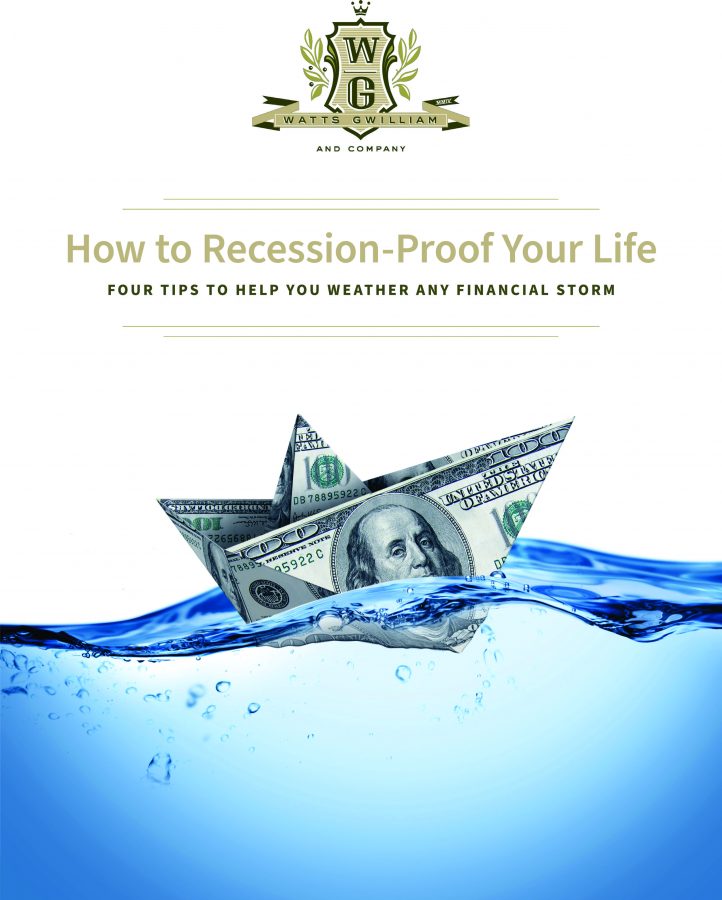How Inflation + Rising Interest Rates Impact High Net Worth Retirement Assets
Inflation and rising interest rates, which all too often work in tandem, are the twin dragons that have a major impact on businesses, and most of their pain is being passed through to investors. The oil industry is a perfect illustration of this phenomenon.
The rising cost of gas is triggering inflation that we have not seen in four decades. Meanwhile, the Federal Reserve is raising interest rates to try to combat that inflation.
The question is what can you do about it to protect your financial interests? What investment mistakes should you avoid?
This article will cover the following topics that impact you:
- How does inflation impact me?
- What is a real rate of return?
- How are interest rates connected to inflation?
- How do rising interests impact the value of my current fixed-income investments?
- How do rising inflation and interest rates impact the performance of the stock market?
- What if I move some of my assets into money market funds?
- Can diversification help protect the market value of my investments?
- What You Can Do To Minimize the Impact of Rising Interest Rates and Inflation?
How does inflation impact high net worth investors?
Inflation impacts the purchasing power of your money. For example, if gasoline is $3.00 per gallon and the price increases to $6.00 per gallon you can buy half as much fuel for the same price or pay twice as much for the same amount of fuel. So your purchasing power, as measured by the price of gasoline, declines precipitously.
Now, just imagine everything you buy increases in price by 5% to 10%. Your only choices are to pay more or to buy less. At this point, inflation is a major game-changer because it impacts the standard of living of millions of American families.
What is a real rate of return?
A real rate of return is the appreciation or depreciation of an investment plus dividends and/or interest that is adjusted for the impact of inflation. This real rate of return that you earn on your investments is designed to measure the purchasing power of your money over time.
Periods of high inflation, like we are currently experiencing, make positive real rates of return difficult to achieve.
A negative real rate of return over longer periods of time can have dramatic impacts on your standard of living. This can be particularly devastating for retirees living on fixed incomes.
How are interest rates connected to inflation?
The Federal Reserve is the central bank of the United States. It uses its power to regulate interest rates to fight the erosive impact of inflation (reduced purchasing power for consumers).
Inflation and interest rates will tend to move in the same direction at the same time. However, in general, interest rate movements will lag significant changes in the rates of inflation.
The Fed uses interest rates to slow down the economy in a way that reduces demand and the production of goods and services. This is typically viewed as a short-term solution to a potentially long-term problem.
How do rising interests impact the value of my current fixed-income investments?
There is an inverse relationship between interest rate movement and the prices of current bonds.
Why is there an inverse relationship?
The price of existing bonds have to adjust to the prices of new bonds. Since interest rates don’t change on existing bonds, the only thing that can change is the price of current bonds.
So if interest rates on new bonds go up, the price of existing bonds goes down (the inverse relationship). This adjustment normalizes the difference in interest rates between new bonds and existing bonds.
Why do existing bonds decline in value when interest rates are rising? Bond investors in the secondary market are not going to pay full price for existing bonds that have lower interest rates. Investors of existing bonds will want to pay a discounted price that offsets the higher interest rates of the newer bonds. By paying less, the current interest rate of the existing bond(the rate based on your purchase price) will match the rate of new bonds.
As interest rates move higher, they become a more attractive investment when compared to riskier investments like stock or real estate.

How do rising inflation and interest rates impact the performance of the stock market?
Interest rates and inflation play key roles in the performance of the stock market.
In general, rising interest rates mean declining growth rates and earnings which negatively impact the valuation of companies and the performance of their stocks. Conversely, falling interest rates will promote growth because borrowing costs are lower.
Rising inflation, which creates rising interest rates, also negatively impacts the performance of company stocks, at least until rising costs can be passed through to consumers and other types of buyers.
On the other hand, lower interest rates and reduced inflation promote improved economic growth, due to increased business revenues and improved profitability.
In fact, lower interest rates encourage companies to borrow and expand, which can increase company earnings. This can have a very positive impact on the performance of the companies’ stocks.
What if I move some of my assets into money market funds?
Rising interest rates are positive for money market funds that invest in CDs, T-Bills, and other short-term investments. However, low rates are not attractive investments after you deduct investment expenses (net return) and inflation (real return). In fact, under current market conditions, the net and real returns are negative.
So why invest in money market funds? These short-term investments do not decline in value during down markets when both the bond and stock markets are producing negative, gross rates of return.
Your principal amount remains the same and you earn a small positive rate of return on your assets. Plus, you avoid significant market declines that can be experienced when you invest in the stock and bond markets.

Can diversification help protect the market value of my investments?
We have two conditions, a high rate of inflation and rising interest rates, that are feeding off each other. The Federal Reserve increases interest rates to slow the economy during periods of high inflation.
Increased diversification can help if you make investments that are not impacted by higher interest rates and rising inflation.
One example is income-producing real estate that has rental agreements that are indexed to inflation. Another example is precious metals that do not produce income but are known to be a hedge against inflation.
A third example can be fixed annuities that are issued by insurance companies. Rising interest rates can improve the returns that are guaranteed by these insurance contracts.
When inflation returns to a more normal rate and interest rates start to fall, it could be a good time to lock in some higher rates of return by adding some longer-term fixed-income investments. Stocks should also do better as rates fall and the equity risk premium declines.
Inflation and interest rates impact many facets of the economy, including your retirement savings. This article is just the beginning of your quest for more knowledge about the securities and the outside forces that impact their performance and your investment strategy.
Conclusion
You need a wealth advisor who works as hard as you do to protect your investable assets. If you are a high net worth individual looking for more than the investment advice a typical financial advisor can offer, look to Watts Gwilliam and Company. We provide:
- Personalized investment management and financial planning highly customized to your individual needs and goals
- Innovative income generation techniques
- Specialized strategies for managing concentrated stock positions
- Access to alternative investments and sophisticated strategies
We offer a free, no-obligation conversation with the Gilbert investment management firm Watts Gwilliam & Company. Click here to contact us.
Click here to download our free eBook: “How to Recession Proof Your Life”

